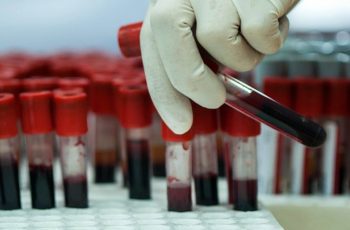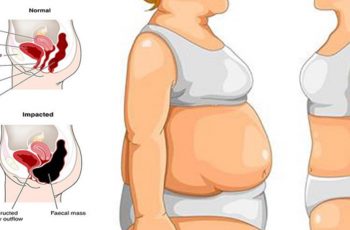As a health-conscious individual, I understand the importance of recognizing the early signs and symptoms of diabetes. Diabetes is a chronic condition that affects millions of people worldwide, and early detection can make a significant difference in managing the disease effectively.
In this article, I will discuss the warning signs of diabetes, including the early symptoms and signs to look out for. Whether you’re concerned about your own health or someone you care about, being aware of these signs can help you take proactive steps towards a healthier future.
Unravel the Early Signs of Diabetes
- Recognizing the early signs of diabetes is crucial for timely diagnosis and management.
- Common early signs of diabetes include increased thirst, frequent urination, fatigue, blurred vision, and unexplained weight loss.
- Regular check-ups and screenings are recommended, especially if you have risk factors such as aging, high blood pressure, or a family history of diabetes.
- Prevention and management of diabetes involve adopting a healthy lifestyle through regular exercise, maintaining a healthy weight, and eating a balanced diet.
- Working closely with healthcare professionals is essential in developing a personalized diabetes management plan and receiving comprehensive education on self-care practices.
Symptoms of High Blood Sugar
High blood sugar levels can cause a range of symptoms that may indicate the presence of diabetes. It is important to recognize these symptoms and seek medical attention if you experience them, as they could be signs of diabetes or other health conditions.
- Increased Thirst: Experiencing intense thirst, even after drinking plenty of fluids, can be a sign of high blood sugar.
- Frequent Urination: High blood sugar levels can cause an increased need to urinate, especially during the night.
- Blurry Vision: If you notice your vision becoming blurry or having difficulty focusing, it may be due to high blood sugar levels.
- Fatigue: Feeling constantly tired or exhausted can be a result of high blood sugar.
- Numb or Tingling Feet: Tingling or numbness in the feet or hands can occur when blood sugar levels are elevated.
- Weight Loss: Unintentional weight loss, despite normal eating habits, can be a symptom of high blood sugar.
- Vaginal and Skin Infections: Women with high blood sugar may be more prone to frequent yeast infections, while both men and women may experience skin infections that are slow to heal.
- Slow-Healing Cuts and Sores: High blood sugar can impair the body’s ability to heal wounds, resulting in slow-healing cuts or sores.
If you experience any of early signs of diabetes, it is essential to consult a healthcare professional for an accurate diagnosis and appropriate treatment. Remember, early detection and management of high blood sugar can help prevent complications and maintain overall health.
Recognizing the Early Signs of Diabetes
Recognizing the early signs of diabetes is crucial for timely diagnosis and management. By being aware of the common signs and symptoms, you can take proactive steps towards your health. Here are some early warning signs to look out for:
- Frequent Urination: If you find yourself urinating more often than usual, it may be a sign of diabetes. The body tries to eliminate excess glucose through urine, leading to increased urination.
- Excessive Thirst: Feeling constantly thirsty, even after drinking enough fluids, can be a sign of high blood sugar levels. This occurs as the body attempts to replenish the lost fluids from frequent urination.
- Increased Hunger: Diabetes disrupts the way the body processes glucose, resulting in inefficient energy utilization. This can lead to persistent hunger and cravings.
- Extreme Fatigue: Feeling tired and exhausted, even after getting enough rest, can be an early symptom of diabetes. This occurs due to the body’s inability to efficiently use glucose for energy.
- Blurry Vision: High blood sugar levels can affect the lenses in the eyes, causing blurred vision. If your vision becomes progressively fuzzy, it is crucial to get it checked.
- Slow-Healing Wounds: Diabetes can impair the body’s ability to heal wounds and injuries. If you notice that cuts or sores take longer than usual to heal, it may be a sign of diabetes.
- Unexplained Weight Loss: Losing weight without making any changes to your diet or exercise routine can indicate elevated blood sugar levels. This occurs as the body breaks down fat and muscle for energy.
If you experience any of these symptoms, it is important to consult a healthcare professional. Remember, early detection and diagnosis are key in managing diabetes effectively. By seeking appropriate treatment, you can take control of your health and prevent complications later on.

Signs of Diabetes in Men and Women
The early signs of diabetes generally occur in both men and women and are similar. However, there are some differences. Both genders may experience symptoms such as frequent urination, excessive thirst, blurry vision, slow-healing wounds, and unexplained weight loss.
Women with diabetes may be more prone to vaginal yeast infections and urinary tract infections. These infections occur because high levels of glucose in the urine can create an environment that promotes the growth of bacteria and yeast. If left untreated, these infections can lead to further complications.
Men with untreated diabetes, on the other hand, may experience a loss of muscle mass. This can occur due to the body’s inability to effectively utilize glucose for energy. Without proper management and control of blood sugar levels, muscle wasting can occur and impact overall strength and health.
It is important for both men and women to be aware of these signs and seek medical attention if necessary. Early detection and timely management of diabetes can help prevent complications and improve overall quality of life.
Recognizing Diabetes Complications
Diabetes can have significant effects on various parts of the body, leading to complications if not properly managed. Recognizing the signs of these complications is essential for maintaining overall health and well-being.
Nerve Damage
Diabetes can cause nerve damage, also known as diabetic neuropathy. Symptoms may include pain, tingling, or numbness in the feet or legs. It can also lead to digestive issues, sexual dysfunction, and problems with the urinary system.
Cardiovascular Problems
Individuals with diabetes have an increased risk of developing cardiovascular problems, such as heart disease and stroke. Warning signs may include high blood pressure, chest pain, shortness of breath, and swelling in the legs.
Kidney Disease
Diabetic nephropathy, or kidney disease, is a common complication of diabetes. Symptoms may include a decrease in urine output, swelling in the ankles and legs, fatigue, and difficulty concentrating.
Eye Problems
Diabetes can lead to various eye problems, including diabetic retinopathy, cataracts, and glaucoma. Symptoms may include blurred or distorted vision, frequent changes in prescription glasses, and dark spots or floaters in the field of vision.
Foot Problems
Diabetic individuals are prone to foot problems, such as diabetic foot ulcers and infections. These may result from poor circulation or nerve damage. Warning signs may include foot pain, calluses or corns, and slow-healing wounds.
It’s important to be vigilant and seek medical attention if you experience any of these symptoms. Proper management of diabetes through lifestyle changes, medication, and regular check-ups can significantly reduce the risk of complications and improve overall quality of life.
Knowing Your Risk for Diabetes
It is important to be aware of the risk factors for diabetes and recognize the early signs of diabetes in order to detect and manage the condition promptly. By understanding the factors that increase the likelihood of developing diabetes, you can take proactive steps to prevent or minimize its impact on your health.
Some common risk factors for diabetes include:
- Aging: As we age, the risk of developing type 2 diabetes increases.
- High blood pressure: Having high blood pressure can contribute to the development of diabetes.
- Being overweight: Being overweight or obese is a significant risk factor for type 2 diabetes.
- Family history: If you have a family member with diabetes, your risk may be higher.
- Gestational diabetes: If you had gestational diabetes during pregnancy, you have a higher risk of developing type 2 diabetes later in life.
- High-risk ethnicities: Certain ethnic groups, such as African Americans, Hispanics, Native Americans, and Asian Americans, are more prone to developing diabetes.
In addition to knowing the risk factors, it is important to be familiar with the early symptoms of diabetes. These may include:
- Frequent urination
- Excessive thirst
- Fatigue
- Blurry vision
- Slow-healing wounds
- Unexplained weight loss
If you experience any of these symptoms or have multiple risk factors, it is recommended to schedule regular check-ups and screenings with your healthcare provider. Early detection of diabetes can lead to timely intervention and better management of the condition.

Preventing and Managing Diabetes
Just like how important it is to spot the early signs of diabetes, preventing and managing diabetes is also crucial for maintaining good health. By adopting a healthy lifestyle and monitoring blood glucose levels, you can effectively control the disease and minimize the risk of complications.
1. Adopt a Healthy Lifestyle
- Engage in regular exercise to improve insulin sensitivity and maintain a healthy weight.
- Eat a balanced diet that includes plenty of fruits, vegetables, whole grains, lean proteins, and healthy fats.
- Avoid sugary drinks and processed foods that can contribute to weight gain and high blood sugar levels.
2. Monitor Blood Glucose Levels
- Regularly check your blood glucose levels to keep them within the target range recommended by your healthcare provider.
- Follow your prescribed medication regimen to control blood sugar levels effectively.
- Be aware of the factors that can affect your blood sugar, such as stress, illness, and certain medications.
Regular check-ups with your healthcare team are essential for managing diabetes effectively. They can help you develop a personalized diabetes management plan and provide comprehensive education on self-care practices. Remember, diabetes is a manageable condition, and with the right strategies, you can lead a healthy and fulfilling life.
Conclusion
Recognizing the early signs of diabetes is crucial for early detection, prevention, and effective management. By being aware of the warning signs and understanding the risk factors, individuals can take proactive steps to reduce the risk of developing diabetes or minimize complications.
A key component of diabetes prevention and management is regular check-ups to monitor blood glucose levels. It is also important to maintain a healthy weight through regular exercise and a balanced diet. By managing blood glucose levels and adhering to prescribed medications, individuals can effectively control their diabetes and prevent further complications.
Education plays a vital role in diabetes management. By staying educated about diabetes, individuals can make informed decisions about their health and lifestyle choices. This includes understanding the importance of early detection, recognizing the signs of diabetes, and taking necessary steps to prevent or manage the condition. With proper self-care practices, individuals can take control of their health and lead a fulfilling life.
FAQ
What are the early signs of diabetes?
The early signs of diabetes can include hunger and fatigue, increased thirst and frequent urination, dry mouth and itchy skin, blurred vision, yeast infections, slow-healing sores or cuts, pain or numbness in the feet or legs, unplanned weight loss, nausea and vomiting, and high blood sugar during pregnancy.
What are the symptoms of high blood sugar?
Symptoms of high blood sugar can include increased thirst, frequent urination, blurry vision, fatigue, numb or tingling feet, weight loss, vaginal and skin infections, and slow-healing cuts and sores.
How can I recognize the early symptoms of diabetes?
The early symptoms of diabetes can include frequent urination, excessive thirst, increased hunger, extreme fatigue, blurry vision, slow-healing wounds, and unexplained weight loss. It is important to consult a healthcare professional if you experience any of these symptoms to determine the underlying cause and receive appropriate treatment.
What are the signs of diabetes in men and women?
The signs of diabetes generally occur in both men and women and are similar. However, women with diabetes may be more prone to vaginal yeast infections and urinary tract infections. Men with untreated diabetes may experience a loss of muscle mass. Both men and women should be aware of signs such as frequent urination, excessive thirst, blurry vision, slow-healing wounds, and unexplained weight loss.
What are the signs of diabetes complications?
Diabetes can lead to various complications if left untreated or poorly managed. Signs of diabetes complications may include nerve damage, cardiovascular problems, kidney disease, eye problems, and foot problems. Symptoms such as pain or numbness in the feet or legs, vision problems, high blood pressure, and slow-healing wounds can indicate the presence of complications. It is crucial to monitor and manage diabetes effectively to prevent or minimize the risk of complications.
How can I know my risk for diabetes?
Knowing your risk for diabetes involves identifying factors such as aging, high blood pressure, being overweight, having a family history of diabetes, having gestational diabetes during pregnancy, and belonging to high-risk ethnicities. If you have any of these risk factors, it is important to get regular check-ups and screenings to catch diabetes at an early stage.
How can I prevent and manage diabetes?
Preventing and managing diabetes involves adopting a healthy lifestyle, including regular exercise, maintaining a healthy weight, and eating a balanced diet. Additionally, monitoring blood glucose levels through regular check-ups and adhering to prescribed medications are essential for effective management. Working closely with healthcare professionals to develop a personalized diabetes management plan and receiving comprehensive education on self-care practices is crucial.
What is the conclusion about diabetes prevention and management?
Recognizing the early signs and symptoms of diabetes, knowing your risk factors, and adopting a healthy lifestyle can significantly reduce the risk of developing diabetes or minimize complications. Regular check-ups, maintaining a healthy weight, and managing blood glucose levels are key components of diabetes prevention and management. By staying proactive and educated about diabetes, individuals can take control of their health and lead a fulfilling life.




